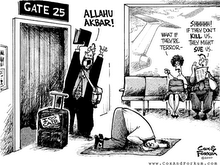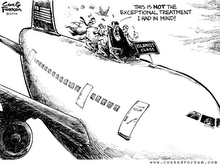Common requests include time off to pray, attend religious services or observe religious holidays. Dress and appearance is another issue, especially in jobs that require the wearing of a uniform.
While some requests are simple to accommodate, others can be tricky. Even if a lawsuit isn’t filed, disputes can be painful. For example, in 2005, 30 Muslim workers made the news when they walked away from their jobs at Dell Inc.’s Nashville, Tenn., plant, saying they weren’t being granted time off to pray at sunset. A month later, the workers, who were packaging computers through a temporary labor agency, were reinstated, given back pay and granted an accommodation.
Amina Rubin, spokeswoman for the Council on American-Islamic Relations, which advocated for the workers in the Dell case, says time off for daily prayers is a commonly requested accommodation for Muslims, who are required to pray five times a day.
Accommodations are requested by people of all religions, though, and companies don’t have to accommodate everyone. Under current law, “undue hardship” has been defined as anything more than de minimis (or very trivial) expenditures, which is a low standard. But courts have differed in their interpretation of undue hardship in cases where the effect is nonmonetary, says Dudley Rochelle, shareholder with Littler Mendelson, a national employment and labor law firm.
“The courts have come out in a fairly pragmatic way,” Rochelle says. “They don’t always say that the person’s religious request trumps everybody else.”
Many religious groups, however, are seeking to tighten the standard of undue hardship through legislation called the Workplace Religious Freedom Act. The legislation has been introduced in Congress several times over the past decade but has never passed.









No comments:
Post a Comment